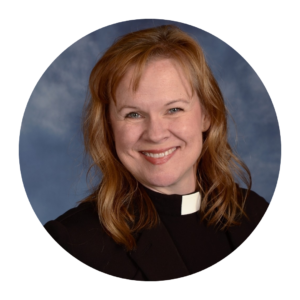The Spinning Dog
My dog, Max, loves watching TV. When he stands in front of the screen and sees either animals, birds, cartoon characters, people who are running, or fast cars, he spins wildly. Even exciting music gets him going. In fact, the only time he doesn’t spin in front of the TV is when people are standing still and talking. I guess he finds that boring. Max has made my TV time so much more entertaining! Occasionally, in the middle of a long movie, Max drifts off to sleep. Once when he was asleep, I saw an animal appear on the screen and said to my daughter, “Max is missing it!” He immediately woke up and started spinning as if he had never stopped.
Now my family and I say this frequently during movies. Even when Max barks at the Amazon driver or a dog he sees across the street, to distract him we shout out “Max is missing it!” Max runs to the TV screen and spins and barks, until he notices that the TV is off. “MAX IS MISSING IT!” is a refrain heard often in our home.
I Don’t Want to Miss It
Recently, I heard a voice arise from within me. It said, “I don’t want to miss it.” I thought that was interesting; it reminded me of what I tell Max. I heard it again in meditation, in prayer, during walks, and when I see a beautiful sunset or watch ducks on a local lake. I heard it when my son played piano, and when my daughter told me about her work with plants. I heard it in the kitchen while preparing dinner, and when leading a congregation in worship, and when my husband and I go out for dinner. “I don’t want to miss it.” I really don’t.
When my mother lay dying from cancer years ago, she quoted a character from the Thornton Wilder play, Our Town. In the play, Emily Gibbs has died in childbirth and, while in the land of the dead, she decides to go back to her hometown of Grover’s Corners, New Hampshire, and visit just one ordinary day of her life: her twelfth birthday. She observes every beautiful moment and says, “Oh, earth, you’re too wonderful for anybody to realize you. Do any human beings ever realize life while they live it — every, every minute?” My mom cautioned me to really see and observe the beauty and goodness of each day of life. Too soon, it will be over and we will all be on to the next part of our journey. Her underlying message was: Don’t miss it.

Discover COMMUNITIES hosted by our PLW experts and surround yourself with like-minded individuals looking to live a peace infused, healthy life.
I’m not talking about FOMO
This idea of not “missing it” is not the same thing as “fear of missing out” (FOMO). In fact, it is the opposite. When we have fear of missing out, we mistakenly believe that everything good is happening somewhere else. We see on social media our friends on vacations in exotic destinations, and we hear of our neighbors attending fine restaurants or buying a boat. We see the relationships, careers, or children other people have and we think our lives would be so much better off if we were in their shoes. So, fearing missing out on something “over there,” we then either sit in toxic jealousy or work to get “over there” like those other people. But we will not find true joy “over there” if we keep missing it “over here.”
Sacramental Awareness
What helps me grasp this concept is the idea of sacramental awareness. A sacrament was defined by St. Augustine as a “visible sign of invisible grace.” I tell my parishioners that God’s love is all around them all of the time; it’s just that the sacraments make that really obvious. In my Lutheran tradition, and among many other Protestant Christians, we recognize two sacraments (baptism and communion). These two have physical elements (water, bread, and wine) attached to promises that Christ has made. Roman Catholics and Eastern Orthodox Christians recognize seven sacraments (in addition to baptism and communion, they are confirmation, penance and reconciliation, anointing of the sick, matrimony, and holy orders), all at pivotal life transitions. Either way, billions of Christians for thousands of years have recognized points in our lives when the mystery, grace, and love of God seemed especially tangible and present.
Sacramental awareness is looking at all aspects of creation in this way. For instance, poet Gerard Manley Hopkins saw the beauty present in nature and exclaimed, “The world is charged with the grandeur of God. It will flame out, like shining from shook foil.” Leonardo da Vinci and Georgia O’Keefe said they saw something of the holy in the world, and captured their vision. So have modern filmmakers like Christopher Nolan and Terrence Malick (watch Interstellar and The Tree of Life to see this in movie form).
The Sacred in the Mundane
Understanding sacramental awareness, Thornton Wilder, through his character Emily Gibbs, teaches us that what is holy is not “over there” or “out there” but right here and right now. As Emily was leaving her one ordinary day, she said, “Good-bye, Good-bye, world. Good-bye, Grover’s Corners… Mama and Papa. Good-bye to clocks ticking… and Mama’s sunflowers. And food and coffee. And new-ironed dresses and hot baths…and sleeping and waking up… “ It is in these ordinary things and events, with ordinary people, that the magic is alive. The problem is not that we don’t live in riches of abundance. The problem is that we often find ourselves missing it.
The Bible shows us stories of blind people receiving sight. But it is never about physical sight. It is about spiritual sight. Jesus said, “Those who have eyes to see, let them see. Those who have ears to hear, let them hear.” I think Jesus knew that we human beings often walk around in a stupor, while miracles occur in, through, and around us — all day, every day. We are swimming in grace and the whole world is a sacrament.
Now we know. Now the rest is up to us. Let us wake ourselves from sleep, like I periodically wake Max. Let us remind ourselves once again, in the middle of a cup of coffee, when we see the beautiful sky, when our child, spouse, or friend talks with us, when we sleep on a soft pillow and rise to greet the new day: I don’t want to miss it. It is all right here. It is stunningly beautiful — if we have the eyes to see.

STEPHANIE LAPE
Stephanie Lape is a pastor in the Evangelical Lutheran Church in America (ELCA).
She holds a Master of Arts degree in Transpersonal Psychology (the psychology of religious experience) from the Institute of Transpersonal Psychology, and a Master of Divinity degree from Luther Seminary. A long-time professor of comparative religions and former campus minister, she now serves as pastor at Eden Lutheran Church in Riverside, California.
Stephanie speaks and teaches on matters of spiritual and psychological development, biblical studies, the enneagram personality tool, and comparative religions. She is an active advocate for interfaith and ecumenical studies. She has taught classes on major religious movements in churches, schools, and city programs, while also leading tours and guest speaking at mosques, synagogues, and temples. Stephanie is honored to be a speaker at the 2021 and 2023 Parliament of the World’s Religions.
She also loves to write. Stephanie is a contributing author for Living Lutheran Magazine and author of Beckoned: Hearing God’s Call to Deeper Faith, which is both a travelogue of her own winding spiritual journey, as well as a guide to help people discover their own path. She lives with her husband and two children in Southern California.




